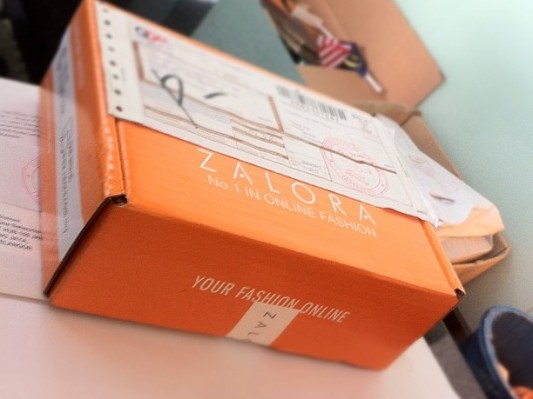The ink is barely dry on Alibaba’s billion dollar investment in Southeast Asia’s Lazada, but already we have news of another Rocket Internet divestment. Zalora, Rocket Internet’s fashion-focused site that raised over $250 million and was once on an equal footing with $1.5 billion-valued Lazada, is shedding two of its lackluster country businesses to cut down on costs, TechCrunch has learned.
Rocket Internet made big moves to fill the e-commerce void in Southeast Asia, a region with over 550 million people but no service from Amazon or eBay, when it started Lazada and Zalora in 2012. Both eyed profitability by 2015, but the two companies continue to pull in heavy losses thanks a combination of factors, including aggressive early targets and slow market growth.
Zalora, Rocket Internet’s take on Zappos, has deemed its businesses in Thailand and Vietnam surplus to requirements and it is in the process of selling both, a source close to Rocket Internet told TechCrunch.
A Zalora spokesperson declined to comment.
Alongside The Iconic, Zalora covers 11 countries across Asia Pacific, including Indonesia, Taiwan and Australia. Our source said the company is now focused on countries where it is “on the verge of profitability” and Thailand and Vietnam don’t figure in that equation. Zalora may opt to sell other business further down the line to further streamline its spending.
According to Rocket Internet’s latest financial results, Zalora’s revenue rose 78 percent to €208 million ($234 million) in 2015, but its net loss increased 36 percent to €93.5 million ($105 million.) Its finances may not be as dire as Lazada’s but, as some have noted, Zalora’s cash reserves can’t be far from depletion so cost-cutting is on the agenda.
Like Lazada, Zalora has been shopped to investors and potential acquirers for some time, our source told us. However, while Rocket Internet was seeking to exit Lazada in its entirety, it is breaking Zalora out into chunks that are for sale in specific markets. That may be because the company is part of Global Fashion Group (GFG), its group of fashion-focused e-commerce players worldwide, while there’s no obvious buyer — unlike Lazada which had Alibaba. (Zalora’s valuation is unclear because it is part of GFG, which was valued at $3 billion when it raised funding last summer.)
TechCrunch understands that a local conglomerate has agreed to purchase Zalora Thailand for just $10 million, although the deal is not closed yet. The acquirer of the Vietnam business is not known right now. (Incidentally, Rocket Internet sold Foodpanda Vietnam last year.)
The timing of these exits is particularly interesting. Japan’s Rakuten recently quit Southeast Asia — selling its Thailand-based business in the process — while Alibaba bought that majority stake in Lazada just before the company ran out of cash. Rocket Internet bagged a respectable 15X return on its investment, but other investors were left disappointed with modest exits after being sold on the ambitious vision of building Lazada into the Amazon of Southeast Asia.
Southeast Asia has long sat in the shadow of larger markets like China and India, but, with over 500 million consumers and a raising middle class, it has potential to be very significant. However, with just three percent of commerce happening online, inconsistent logistics and differing cultures across the region, building a successful e-commerce business is hugely challenging and capital intensive.
These sales appear to mark a new focus for Rocket Internet in Asia. The company has spent the past few years developing companies with serious scale — like Lazada, Zalora and Foodpanda — but it recently announced a new strategy that takes it back to launching early-stage startups in the region — such as budget hotel network Zen Rooms. It isn’t just Southeast Asia where it is getting out of its more capital-intensive businesses. Beyond Lazada and Zalora, Rocket Internet sold India-based Fab Furnish this month, and it is reportedly looking for buyers to take Foodpanda India and e-commerce player Jabong off its hands.
